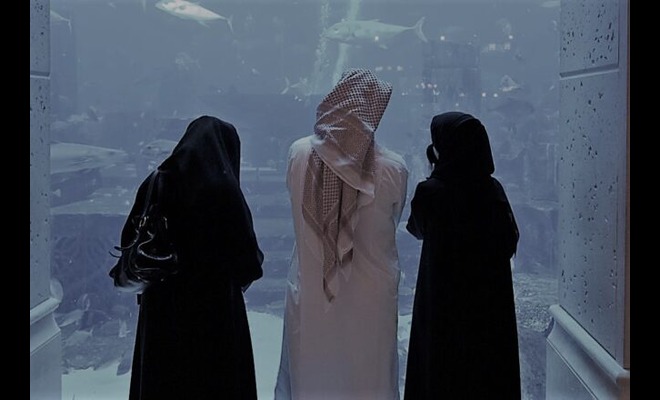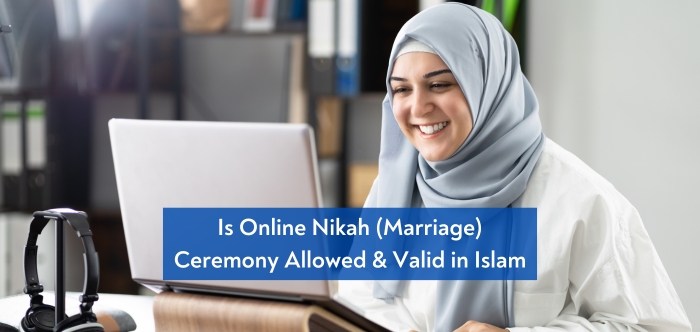Interfaith Marriage in Islam: Can a Muslim Man Marry Christian or Jewish Women?

Interfaith marriage in Islam
In our interconnected world, where cultures and religions intersect, questions about interfaith marriages within Islamic law (sharīʿa) are not just matters of legality and theology but deeply personal choices that shape individuals’ lives and community dynamics. This comprehensive exploration delves into the permissions, conditions, historical perspectives, and contemporary debates surrounding whether a Muslim man can marry Christian or Jewish woman according to Islamic teachings.
1. Islamic Perspective on Interfaith Marriages
Islamic teachings, anchored in the Qur’an and Hadith, provide specific guidelines on relationships between Muslims and “People of the Book” (Ahl al-Kitāb), which includes Jews and Christians. The Qur’an (5:5) acknowledges these communities as adherents of monotheism, closely aligning with Islamic beliefs. This recognition forms the basis for allowing Muslim men to marry women from these backgrounds under certain conditions.From an Islamic legal standpoint, Ahl al-Kitāb affirms the validity of Jewish and Christian faiths, emphasizing mutual respect and religious freedom within marriages. This framework aims to preserve cultural and religious identities while promoting harmony and understanding between spouses (Qur’an 2:221).
Understanding the broader concept of Nikah in Islam helps clarify how Islamic law views marriage as a sacred and regulated institution.
2. Conditions and Requirements in Islamic Law
For a Muslim man seeking to marry a Christian or Jewish woman, Islamic law mandates that she must be allowed to freely practice her religion. This condition ensures that both partners can maintain their religious identities and practices within the marriage, fostering mutual respect and understanding. These conditions are rooted in Islamic teachings on compatibility and shared values in marital relationships.
3. Historical Development and Legal Interpretations
Throughout Islamic history, scholars have engaged in extensive debates over the interpretation of interfaith marriages, considering theological principles and societal norms. Traditionally, Sunni Islamic scholars have permitted Muslim men to marry women of the Book while historically restricting Muslim women from marrying non-Muslim men. These interpretations have evolved over time, shaped by cultural contexts and theological insights.Historical documents like the Ashtiname of Muhammad provide insights into early Islamic principles of tolerance towards Christians, offering a historical backdrop for contemporary discussions on interfaith relations. Such precedents highlight the Prophet Muhammad’s commitment to religious pluralism and mutual respect, guiding current debates on interfaith marriages within Muslim communities.
4. Contemporary Views and Progressive Perspectives
In the contemporary era, progressive Muslim scholars advocate for inclusive interpretations of Islamic law concerning interfaith marriages. They emphasize principles of equality, mutual respect, and understanding between spouses of different faith backgrounds, reflecting evolving societal norms and fostering inter-religious dialogue. These perspectives challenge traditional interpretations and promote compassionate engagement across religious boundaries.
5. Practical Considerations and Challenges
Navigating an interfaith marriage involves practical considerations such as familial expectations, legal complexities in different jurisdictions, and the importance of open communication and mutual respect in religious practices. Couples face unique challenges in balancing cultural sensitivities and legal frameworks, requiring sensitivity to personal convictions and societal expectations.
6. Cultural Impact and Social Acceptance
In societies where interfaith marriages are accepted, these unions contribute positively to cultural diversity and promote inter-religious dialogue, enhancing communal understanding and unity. They serve as examples of mutual respect and cooperation across religious lines, fostering social cohesion and bridging cultural differences within diverse communities. However, social acceptance and legal recognition of interfaith marriages vary globally, influencing couples’ experiences and family dynamics.
7. Legal Frameworks and Civil Rights
Legal frameworks vary across jurisdictions concerning the recognition and protections afforded to interfaith marriages, impacting societal acceptance and individual rights. Understanding these legal dynamics is crucial for couples navigating cross-cultural marriages, ensuring they are informed about their rights and responsibilities within diverse legal landscapes.
FAQs (Frequently Asked Questions)
1. Can a Muslim woman marry a Christian or Jewish man according to Islamic teachings?
No, traditionally Islamic law does not permit Muslim women to marry non-Muslim men, regardless of their faith backgrounds.
2. What does “People of the Book” (Ahl al-Kitāb) refer to in Islamic teachings?
Ahl al-Kitāb refers to Jews and Christians who are considered to have received divine scriptures and are recognized as monotheistic believers in Islamic theology.
3. Are there specific conditions for a Muslim man to marry a Christian or Jewish woman?
Yes, she must be allowed to freely practice her religion, and there should be mutual respect for each other’s faiths within the marriage.
4. How do cultural differences impact interfaith marriages in Muslim-majority societies?
Cultural differences can pose challenges related to family expectations, societal acceptance, and the integration of diverse religious practices within the marital relationship.
5. What are some legal considerations for interfaith marriages in different countries?
Legal frameworks vary globally, impacting issues such as marriage recognition, inheritance rights, and child custody, which couples need to navigate depending on their country of residence.
6. How do progressive Muslim scholars interpret interfaith marriages in modern contexts?
Progressive scholars advocate for inclusive interpretations that emphasize mutual respect, equality, and understanding between spouses of different faith backgrounds, aligning with contemporary societal norms.
7. What historical precedents exist for interfaith relations in Islam?
The Ashtiname of Muhammad and historical interactions between early Muslims and Christians provide insights into principles of tolerance and coexistence, influencing Islamic perspectives on interfaith marriages.
8. How can couples from different religious backgrounds maintain harmony in an interfaith marriage?
Open communication, mutual understanding, and respect for each other’s beliefs and practices are crucial for fostering harmony and mutual growth within the marital relationship.
9. What role do families play in accepting interfaith marriages in Muslim communities?
Family acceptance varies widely and can significantly influence marital dynamics, with some families supporting and others challenging interfaith unions based on cultural and religious norms.
10. Are there support networks or resources available for couples navigating interfaith marriages?
Yes, organizations and community groups often provide support, counseling, and resources to help couples address challenges and celebrate the diversity of their union within Islamic principles.
Conclusion
In conclusion, while traditional interpretations of Islamic jurisprudence permit Muslim men to marry Christian or Jewish women under specific conditions, contemporary perspectives emphasize mutual respect, understanding, and unity across religious differences. As societal attitudes evolve, interpretations of Islamic teachings adapt, reflecting the dynamic nature of Muslim communities worldwide.
These rulings align closely with the purposes of marriage in Islam, which emphasize faith, responsibility, and social harmony.






